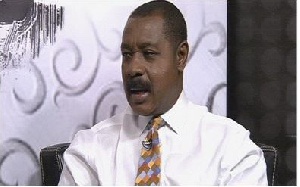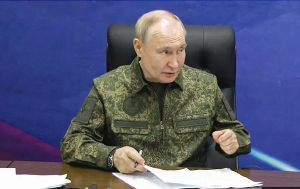The Chief Executive Officer (CEO) of the Private Enterprises Federation (PEF), Nana Osei Bonsu, has warned of social instability if the different aspirations of Ghanaians are not met.
According to him, democracy requires good governance, transparency and accountability, participation and the rule of law.
“You cannot practice democracy when you are hungry; when people don’t have jobs, they don’t have incomes. The sum total of all that they is chaotic conditions,” he said.
Nana Osei Bonsu was speaking at a day’s lecture to mark the 50th anniversary of the existence of Konrad Adenauer Stiftung (KAS), a German political organisation in the country, at the Department of Political Science of the University of Ghana, Legon, last Thursday.
The topic was: ‘Is there any relationship between democracy and development?’
The anniversary, which was celebrated on the theme: ‘50 Years Of Promoting Development and Democracy in Ghana,’ was used by the organisation to take stock of its contribution to democratic institutions in the country.
The PEF boss noted that a country that was broke was a country facing distinction and where its people could not function as responsible citizens.
The citizens right to vote, consensus building, equity and inclusiveness and the promotion of free enterprise remain essential ingredients of democracy, he pointed out.
“Unless there is free enterprise that promotes that provides profit margins and job creation to enhance wealth creation and alleviate poverty we cannot make progress,” Nana Osei Bonsu added.
Delivering the main lecture on the topic, “Development and democracy -Past, present and future,” the Head of the History Department of the University of Ghana, Prof. Emmanuel Debrah, said development would occur more in a democratic state than under dictatorship.
He said in a democratic state, there were checks and balances, where the legislature, the judiciary and the executive worked together to ensure that the needed development was brought into being.
Prof. Debrah explained that in a democratic government, the citizens determined what development the government had to provide them, saying, “Democracy allows citizens to ask what they want.”
He attributed the massive development in the western countries such as Germany and France to their long practice of democracy.
General News of Wednesday, 5 October 2016
Source: thefinderonline.com













